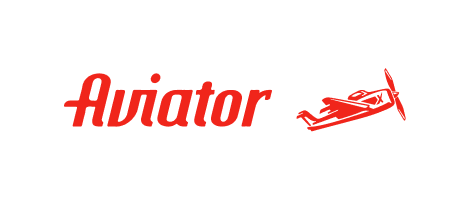Who Owns NASCAR? Governance and Family Legacy
When you think about NASCAR, it’s easy to picture roaring engines and checkered flags, but behind the spectacle is a family legacy quietly steering the sport. The France family has shaped NASCAR’s rules and trackside traditions for decades, but their grip faces new pressures from private equity and changing team dynamics. You might be surprised at how this balance of power affects every race—and how it could all shift in the years ahead.
The France Family: Guardians of NASCAR’s Evolution
The France family's stewardship of NASCAR has significantly influenced the organization's development since Bill France Sr. established it in 1948. Their involvement is evident in various facets of NASCAR's governance and structure. The family played a pivotal role in popularizing stock car racing across the United States, including the construction of Daytona International Speedway, which became a hallmark of the sport.
They've maintained traditional values while also adapting NASCAR to industry dynamics and economic pressures. Throughout the years, the France family has navigated challenges in the racing industry, implementing new frameworks such as the charter system, which aimed to stabilize teams and enhance competitive balance.
Their approach has been to blend innovation with foundational principles, reflecting a commitment to preserving NASCAR's heritage while fostering growth. As discussions about the potential sale of NASCAR surface, the France family has consistently reiterated their dedication to ensuring the continuity of the organization's core values and strategic vision.
This steadfast commitment has played a crucial role in NASCAR's resilience and ongoing evolution within the broader sports landscape.
Strategic Leadership and Key Milestones in NASCAR
NASCAR's evolution has been driven by strategic leadership decisions that have significantly influenced the sport's development and sustainability. The France family's long-standing ownership has played a central role in establishing governance standards that balance tradition with innovation.
Key milestones in this progression include the construction of Daytona International Speedway and the implementation of the charter system in 2016, initiatives designed to enhance teams' financial stability.
The introduction of the charter system aimed to ensure that teams had guaranteed participation in races, which contributed to a more stable economic environment within the sport. This move came at a time when the media landscape was shifting, attracting interest from private equity firms. However, the France family chose to retain full ownership, which helped maintain the continuity and integrity of NASCAR's operations.
Private Equity’s Emerging Role in Modern NASCAR
The France family has maintained ownership of NASCAR since its inception in 1948. However, there's a notable increase in private equity investment at the team level, exemplified by Knighthead Capital Management's investment in Legacy Motor Club.
This development indicates a shift in the financial landscape of NASCAR, as private equity firms bring in new capital and strategic resources to support teams.
NASCAR President Steve Phelps has acknowledged the advantages of private equity, emphasizing its role in enhancing financial stability and expanding sponsorship opportunities while safeguarding the sport's traditional values. The influx of private equity may help teams navigate financial pressures arising from evolving media consumption patterns and growth ambitions.
As private equity becomes more influential, it's likely to impact governance structures within teams.
Nevertheless, the France family continues to secure NASCAR's historical ownership, indicating that its foundational role in the sport remains intact amidst these emerging financial dynamics.
The Charter System Debate and Team Governance
The ongoing discussion surrounding the charter system within NASCAR highlights critical issues related to team governance, revenue sharing, and financial stability in the sport. The charter system was established to provide teams with a degree of security and to ensure a more stable organizational structure. However, it has also led to disagreements between teams and NASCAR's governing body.
Legal disputes have emerged, notably involving teams such as 23XI Racing, which have raised antitrust claims against NASCAR's leadership. These disputes stem from concerns over the management of team rights and the distribution of revenues among participants.
The France family's position on retaining full ownership of NASCAR and its operations has been consistent, even amidst external pressures for reform and potential investment.
The clarity of the charter rules is often questioned, resulting in an environment of tension that affects team operations and overall competitiveness.
This ongoing situation poses challenges not only for dispute resolution but also for the long-term governance structure of NASCAR, as stakeholders navigate the implications of these legal and financial debates. Understanding these dynamics is crucial for analyzing the future trajectory of the sport and its governance model.
Legacy Motor Club: A Case Study in Ownership Transition
Since its establishment in 2021, Legacy Motor Club has experienced notable changes in ownership and strategic direction, reflecting the ongoing evolution within NASCAR's team dynamics. The transition of majority ownership to Jimmie Johnson in 2025 represents a significant shift from previous owner Maury Gallagher. This change underscores the connection to the Petty brand, particularly with the historic No. 43 car, which reinforces the team's heritage within the sport.
Furthermore, the partnership with Knighthead Capital Management is indicative of efforts to drive growth and enhance the competitive standing of Legacy Motor Club in NASCAR.
Under the leadership of CEO Cal Wells III, the organization is positioned to adapt to the changing landscape of NASCAR ownership, focusing on innovation and strategic development. This aligns with broader trends in the industry, as teams seek to establish sustainable models in a competitive environment.
Future Pathways: Tradition, Investment, and Change
As NASCAR navigates its future, the interplay between tradition and new investment plays a critical role in shaping its direction.
The France family's commitment to maintaining NASCAR’s legacy is evident through their decision to retain ownership, despite increasing financial pressures. This steadfast approach reflects a desire to uphold core values associated with the sport. Instead of a complete sale, they've opted to pursue partnerships at the team level, such as Legacy Motor Club's agreement with Knighthead Capital, which aims to create growth opportunities without relinquishing control.
The charter system remains a point of contention among team management, which seeks a more significant influence in the decision-making process.
Nonetheless, the France family's leadership is pivotal in ensuring that while innovations and investments are made, traditional aspects of the sport are preserved. This balancing act of tradition and modern investment strategies highlights NASCAR’s ongoing efforts to adapt to changing market conditions and stakeholder expectations while maintaining its foundational principles.
Conclusion
As you look at NASCAR today, you’ll see the France family’s fingerprints all over its evolution. Their leadership’s kept the sport’s traditions alive while steering it through bold changes like the charter system. Even with private equity shaping team investments and fresh ownership models emerging, the family’s influence ensures NASCAR never loses its roots. Going forward, you’ll witness a balancing act—honoring legacy while embracing innovation to keep the engines—and the excitement—roaring.

